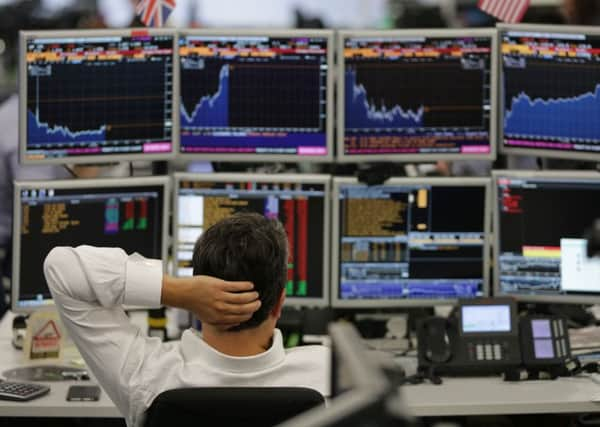Martin Flanagan: Could the pound's gain prove to be equities' loss?
This article contains affiliate links. We may earn a small commission on items purchased through this article, but that does not affect our editorial judgement.


Just coincidence? The pound fell back a bit yesterday on renewed Brexit worries after the Supreme Court ruled that Theresa May will have to seek parliamentary approval first before she can trigger Article 50 talks in March to quit the EU.
But there is a body of opinion that should sterling regain its momentum in the coming months it could be bad news for UK shares. The stock market highs had been partly fuelled by the sharp fall in the pound since the Brexit vote.
Advertisement
Hide AdAdvertisement
Hide AdEquities had previously benefited from the perception that a weaker pound would fuel UK exports and earnings, with about 70 per cent of profits at leading companies being made overseas.
The highly respected EY Item Club forecast earlier this week that UK exports would be boosted through this effect by 3.3 per cent this year and 5.2 per cent in 2018.
But if the dollar continues to weaken and sterling bounces back from yesterday’s Supreme Court setback, could this weigh on the FTSE 100 and FTSE 250 indexes as the year progresses?
Michael Hewson, chief market analyst at CMC Markets, said the fact that last week’s perceived “hard Brexit” announcement from Theresa May didn’t see further sterling weakness “could well be a warning that we may have seen a near term base in the pound, given last week’s failure to push below the $1.20 level [against $1.50 before the Brexit vote last June]”.
Hewson added: “If we have seen a near term base in the pound this could also have repercussions for the recent rise in the FTSE 100 to record highs.
“Indeed, the recent rebound in the pound has seen the FTSE 100 post its first negative week since the beginning of November last year.”
Such analysts say the pound would get a further shot in the arm from any rise in historically lower interest rates by the Bank of England in the face of rising inflation, putting further pressure on shares. The price index lifted to 1.6 per cent in December.
Advertisement
Hide AdAdvertisement
Hide AdRichard Hunter, market strategist at Wilson King Investment Management, said “any number of things” could lead the pound to rally further, including “weakness in the US dollar or euro, further hopes of UK economic strength as Brexit negotiations commence, the possibility of UK trade deals with superpowers such as the US and China, and even a spike in inflation which forces the Bank of England to raise interest rates. All could be positive for the pound”.
Hunter said that on the basis of what happened last year with the post-Brexit vote fall in sterling’s value such a contra-development “would be largely positive for the FTSE250 and negative for the FTSE100, although that, of course, would be also dependent on the strength of any such recovery in the pound”.
There’s the rub. A purely incremental recovery in the pound would likely have little discernible impact on the Footsie.
Howard Archer, chief UK economist at IHS Global Insight, said: “If the pound strengthens, it could weigh down on the FTSE-100 and perhaps FTSE 250 as it would potentially hamper overseas sales/earnings prospects for larger companies.”
However, Archer said that he was “dubious” that the pound would recover in 2017.
“Support to sterling could come if the UK economy holds up better than expected during 2017,” he said. “For example, if the labour market holds up and consumers get decent pay increases, consumer spending could surprise on the upside.
“Also, if negotiations with the EU over Brexit prove constructive and cordial that would be likely to provide support to sterling.
“We have been expecting that the dollar will be strong due to Trump fiscal stimulus and stronger growth leading to appreciable Fed tightening. But if Trump ends up really spooking the markets, the dollar could suffer.”
Advertisement
Hide AdAdvertisement
Hide AdThe dollar initially gained on Trump’s election because the market felt his promised sharp boost to infrastructure spending would be good for the economy.
But this has been replaced across the pond by concern about surging debt in the US if there is major spending on roads, tunnels, telecommunications etc at the same time as cutting taxation.
In some ways, then, and given forecasts that the UK economy will only grow at 1.3 per cent this year, any recovering pound is likely to be as much down to a weakening dollar as inherent sterling strength. UK equities are watching.